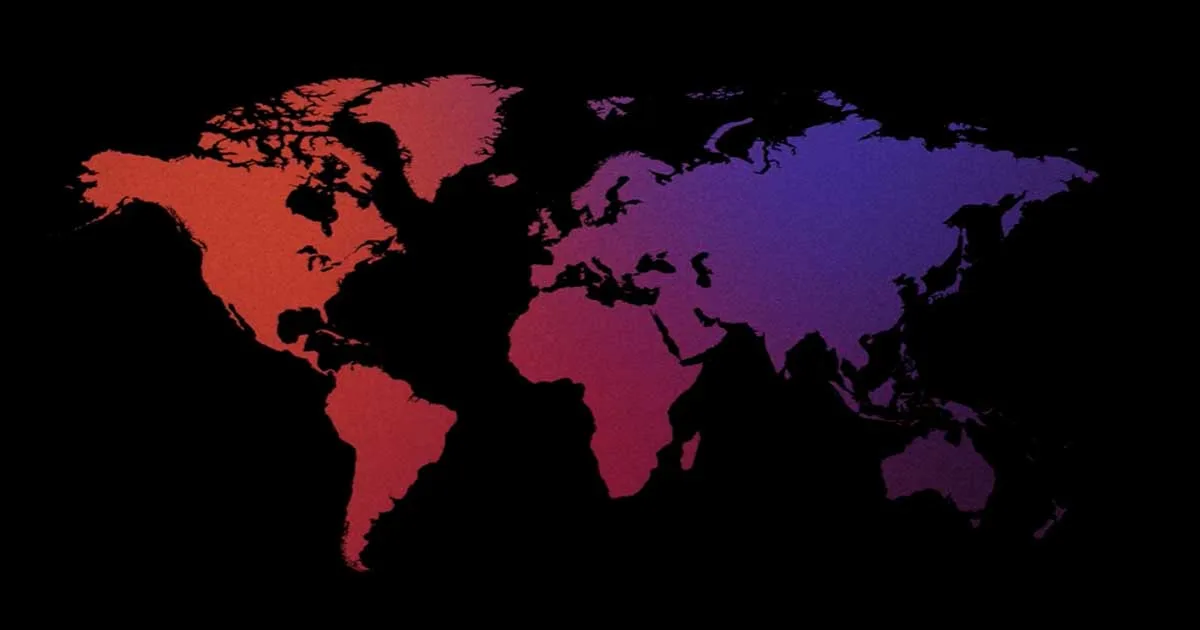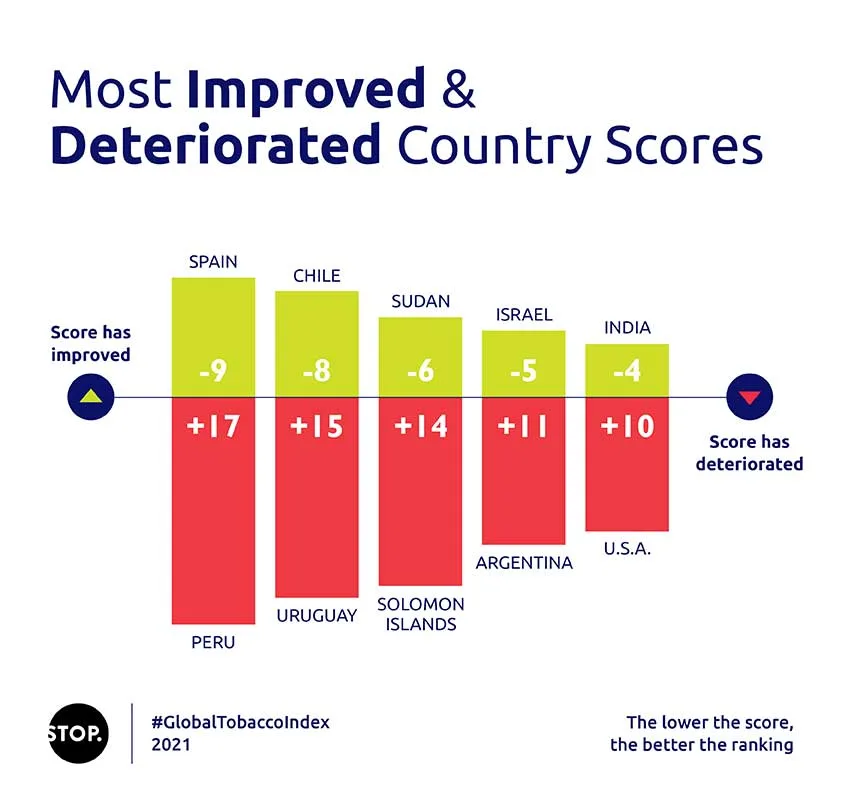- Resources
- News
-
-
Get Email Updates
Sign up for STOP's emails and never miss an update on our latest work and the tobacco industry's activity.
-
Get Funding
Ready to tackle industry interference? You could be eligible for a grant.
-
Share a Tip
Do you have information on tobacco industry misconduct in your country? Let us know.
-
Get Email Updates
Sabotaging Policy
November 09, 2021

“We have rung the alarm bell loud and clear,” Dr. Tedros Adhanom Ghebreyesus, Director-General of the World Health Organization, said on March 11, 2020. He had just declared the COVID-19 outbreak a pandemic.
At the time, 81 countries hadn’t reported any cases at all, and 57 had reported only 10 cases or fewer. That quickly changed as the virus spread and, as much of the world keenly remembers, cast an ominous shadow across the entire globe.
The tobacco industry lost little time finding ways to get what it wanted during this particularly dark period. The 2021 Global Tobacco Industry Interference Index, which ranks 80 countries on how well they’ve protected their policies from industry influence, documents several cases where tobacco companies took actions to keep people smoking—while respiratory health (and more) was under immediate threat. Most concerning, perhaps, was the realization that even during a pandemic, as public health and economic stability were on the line, the tobacco industry plowed forward in its quest to protect profits above all else.
While this year’s Index highlights the governments that stood up to industry influence, it also serves as a different kind of alarm bell, reminding governments around the world that tobacco control must be a top priority—and showing what happens when it’s not.

The pandemic revealed the industry’s true priority: profits
Hospitals were filling up and health care systems were straining to the point of near-collapse, but that didn’t stop some tobacco companies from ensuring their products could still be manufactured, sold and consumed.
The Global Tobacco Index documents how the Ministry of Industries in Bangladesh gave special permissions to British American Tobacco (BAT) and Japan Tobacco International to continue manufacturing and distribution during nationwide shutdowns. The industry successfully convinced the government to lift a ban on cigarette sales in Botswana in April 2020, and BAT relaunched a cigarette brand in Kenya, before the government dropped tobacco from its list of essential products.
Not only did the industry push to keep tobacco consumption up, the Index shows it used its influence and deep pockets to secure other benefits, such as weakened tax policies. Tobacco taxation is proven to help reduce tobacco use and generates revenue for governments to use on things like anti-smoking initiatives or COVID recovery. When governments needed these funds the most, tobacco companies lobbied for the opposite. Tobacco companies took advantage of governments that were made vulnerable by the pandemic and offered personal protective equipment, ventilators, ambulances and more. According to the Index, several countries that ended up accepting such donations also ended up compromising on tobacco tax policies.
The pandemic highlighted the antidote to industry interference: Article 5.3
While the Global Tobacco Index shows many examples of governments allowing the industry to take actions to maximize profits, even in the face of an international health crisis, it also shows rays of hope. Tobacco industry-related CSR is banned in Iran, preempting PR opportunities that often stem from such activities; Brunei continues to implement a code of conduct that prevents unnecessary interaction between civil servants and the industry; and France requires the disclosure of conflicts of interest to protect public policies. The Index details more cases where governments stood up to the industry and prioritized public health.
Article 5.3 of the WHO Framework Convention on Tobacco Control (FCTC), a global health treaty, gives governments the guidelines to do just that. But its success lies in implementing Article 5.3 across the entire government, not just within ministries of health. As illustrated in the Index, tobacco companies often work directly with departments typically more friendly to tobacco to get what they want, such as ministries of trade, even when ministries of health protest such interactions. When a country implements Article 5.3 consistently, it stands equipped to prioritize the interests of its population over those of the tobacco industry.
Conversely, the five countries ranked in the Index that are not Parties to the FCTC (the Dominican Republic, Switzerland, Indonesia, Argentina and the U.S.A.), showed high levels of industry interference in health and tobacco control policies.
In COVID times and beyond, tobacco control must be prioritized
The new Index gives a comprehensive view of which governments led the way in protecting policies (and thus, people) from industry influence and which governments lagged behind. Most importantly, it underscores a crucial reminder: As the pandemic continues, so does the need for stronger tobacco control measures around the world.
About the report: The Global Tobacco Industry Interference Index (the Index) is a global survey on how governments are responding to tobacco industry interference and protecting their public health policies from commercial and vested interests as required under the FCTC.
For this year’s Index, the Global Center for Good Governance in Tobacco Control (GGTC), a partner in STOP, used civil society reports from participating nations to rank 80 countries that cover about 83% of the world’s population.


